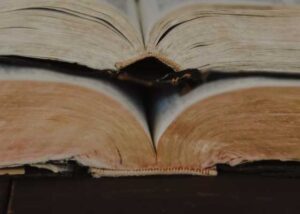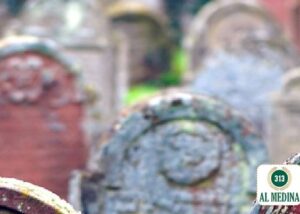Is there a Hadith about praising the dead?
Quran
Hadith
Islamic Text
بِسْمِ اللَّهِ الرَّحْمَنِ الرَّحِيمِ
In the Name of Allah Most Merciful Most Kind
Short Answer
Yes, there is a Hadith about praising the dead in Sahih al-Bukhari.
Hadith
عَنْ أَبِي الأَسْوَدِ، قَالَ: قَدِمْتُ المَدِينَةَ وَقَدْ وَقَعَ بِهَا مَرَضٌ، فَجَلَسْتُ إِلَى عُمَرَ بْنِ الخَطَّابِ رَضِيَ اللَّهُ عَنْهُ، فَمَرَّتْ بِهِمْ جَنَازَةٌ، فَأُثْنِيَ عَلَى صَاحِبِهَا خَيْرًا، فَقَالَ عُمَرُ رَضِيَ اللَّهُ عَنْهُ: وَجَبَتْ، ثُمَّ مُرَّ بِأُخْرَى فَأُثْنِيَ عَلَى صَاحِبِهَا خَيْرًا، فَقَالَ عُمَرُ رَضِيَ اللَّهُ عَنْهُ: وَجَبَتْ، ثُمَّ مُرَّ بِالثَّالِثَةِ فَأُثْنِيَ عَلَى صَاحِبِهَا شَرًّا، فَقَالَ: وَجَبَتْ، فَقَالَ أَبُو الأَسْوَدِ: فَقُلْتُ: وَمَا وَجَبَتْ يَا أَمِيرَ المُؤْمِنِينَ؟ قَالَ: قُلْتُ كَمَا قَالَ النَّبِيُّ صَلَّى اللهُ عَلَيْهِ وَسَلَّمَ: «أَيُّمَا مُسْلِمٍ، شَهِدَ لَهُ أَرْبَعَةٌ بِخَيْرٍ، أَدْخَلَهُ اللَّهُ الجَنَّةَ» فَقُلْنَا: وَثَلاَثَةٌ، قَالَ: «وَثَلاَثَةٌ» فَقُلْنَا: وَاثْنَانِ، قَالَ: «وَاثْنَانِ» ثُمَّ لَمْ نَسْأَلْهُ عَنِ الوَاحِدِ
Abu al-Aswad said, I came to Medina when an epidemic had broken out. While I was sitting with Umar bin Al-Khattab a funeral procession passed by and the people praised the deceased. Umar said, “It has become necessary.” And another funeral procession passed by and the people praised the deceased. Umar said, “It has become necessary.” A third (funeral procession) passed by and the people spoke badly of the deceased. He said, “It has become necessary. I (Abu Al-Aswad) asked, “O leader of the believers, what has become necessary?” He replied, I said the same as the Prophet ﷺ said, ‘Any Muslim in whose favour four people testify, Allah will admit him to Paradise.’ We said: Or three? He ﷺ said: ‘Or three.’ We said: Or two? He ﷺ said: ‘Or two.’ Then we did not ask him ﷺ about one. (Sahih al-Bukhari, 1368).
In the Hadith about praising the dead above, we see that the Holy Prophet ﷺ mentioning Paradise for those individuals who are praised after their death. However, it is important to recognise that this is only the case if the praise is deserved and reflects reality. As for undue praise, it will not benefit the deceased.
Excessive praise of the dead is often found if the deceased was a scholar or a religious figure. In such cases people have a tendency to speak about the deceased’s rank with Allah (Most High). For example, they may refer to the person as a Wali of Allah Most High (in a definitive manner). We must be cautious when speaking of such matters. Only Allah (Most High) knows who a Wali is and who is not.
Therefore, if one is going to speak about such matters then it must be presented as speculative and not definitive. One can comment on his or her own believe or suspicion. However, one has no right to speak on behalf of Allah (Most High).
Classical Scholars
This Hadith is undoubtedly authentic since it has been narrated by Imam al-Bukhari in his Sahih collection. All such Musnad Hadith are authentic:
جَمِيع مَا حكم مُسلم بِصِحَّتِهِ من هَذَا الْكتاب فَهُوَ مَقْطُوع بِصِحَّتِهِ وَالْعلم النظري حَاصِل بِصِحَّتِهِ فِي نفس الْأَمر وَهَكَذَا مَا حكم البُخَارِيّ بِصِحَّتِهِ فِي كِتَابه وَذَلِكَ لِأَن الْأمة تلقت ذَلِك بِالْقبُولِ سوى من لَا يعْتد بِخِلَافِهِ ووفاقه فِي الْإِجْمَاع (صيانة صحيح مسلم)
Everything that (Imam) Muslim considered to be Sahih of this book is undoubtedly Sahih, and it leads to contemplative certainty due to its authenticity. Likewise, everything that (Imam) al-Bukhari considered to be Sahih in his book (is Sahih), because the Ummah has accepted that reality (the authenticity of Bukhari and Muslim) with agreement. With the exception of a few, whose acceptance or disagreement does not affect the consensus. (Imam Ibn Salah, Siyanatu Sahih Muslim).
And Allah Most High Knows best.
– Answered by Shaykh Noorud-deen Rashid (25.09.2021)






